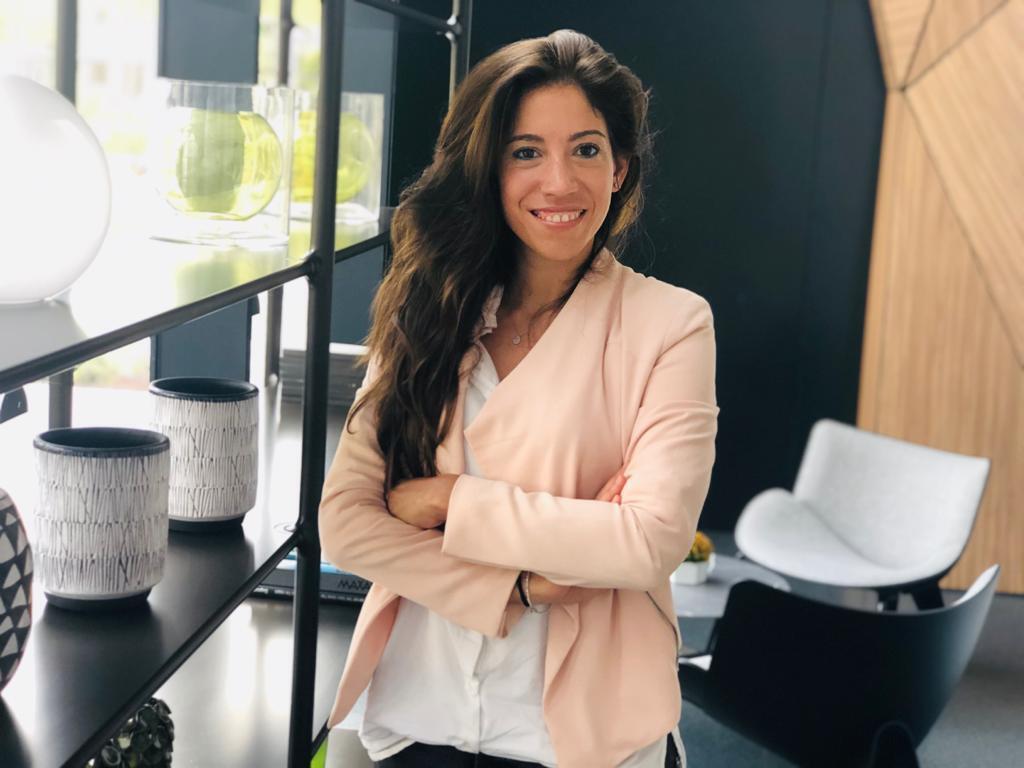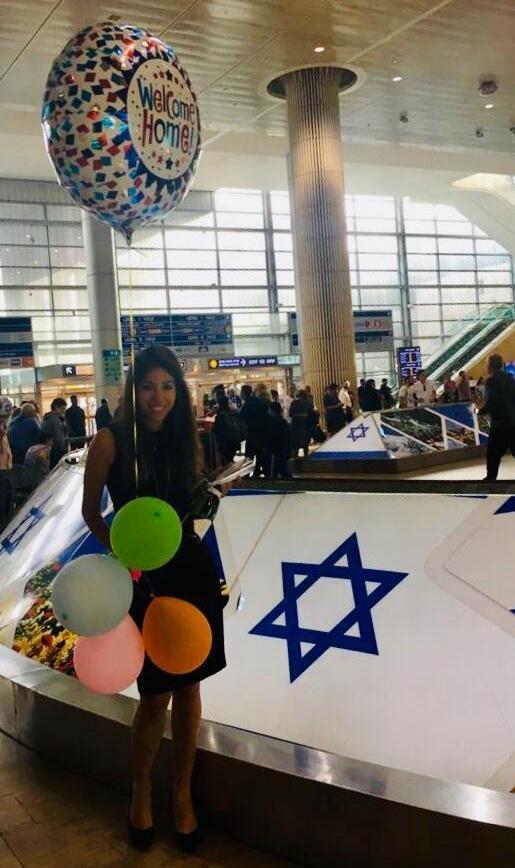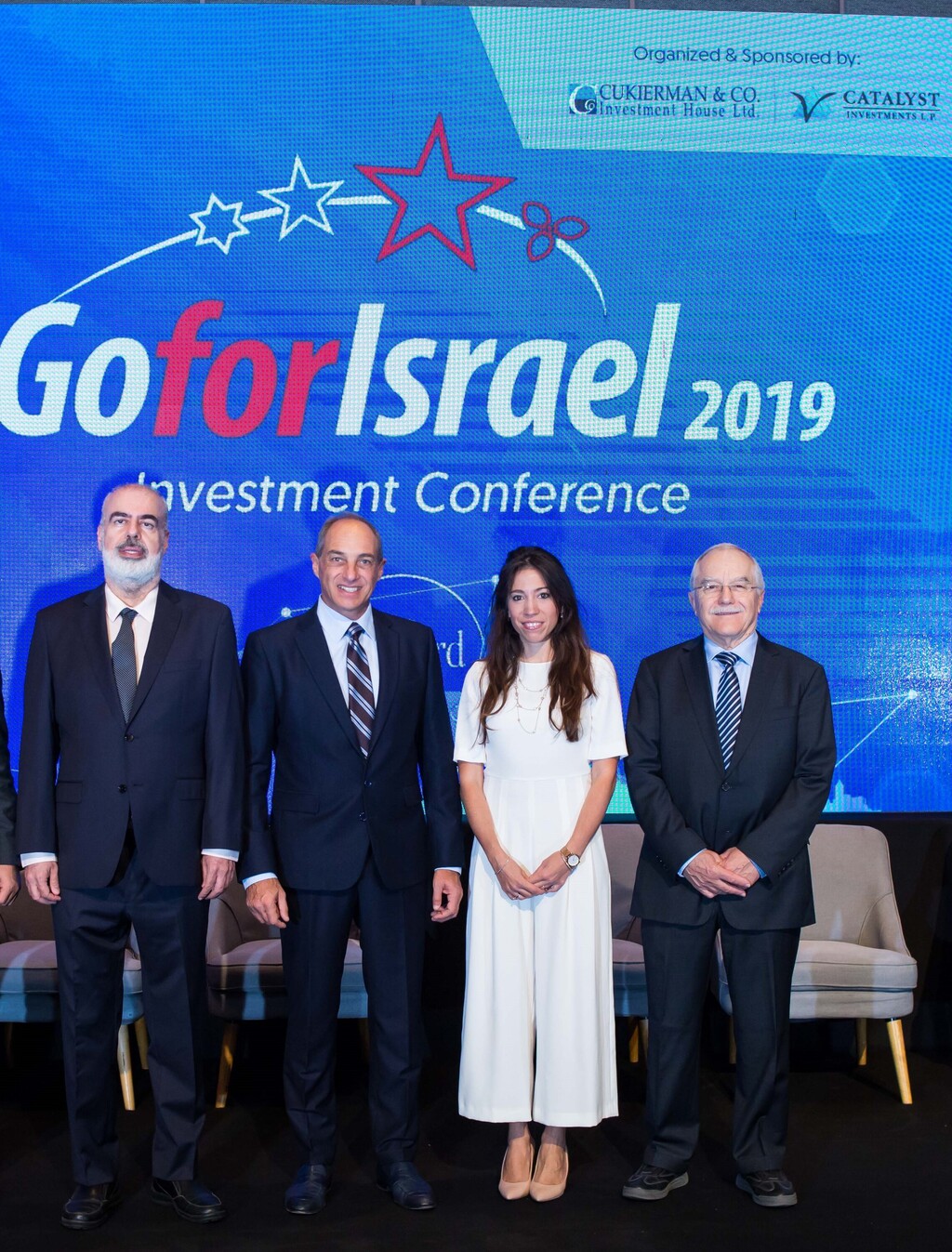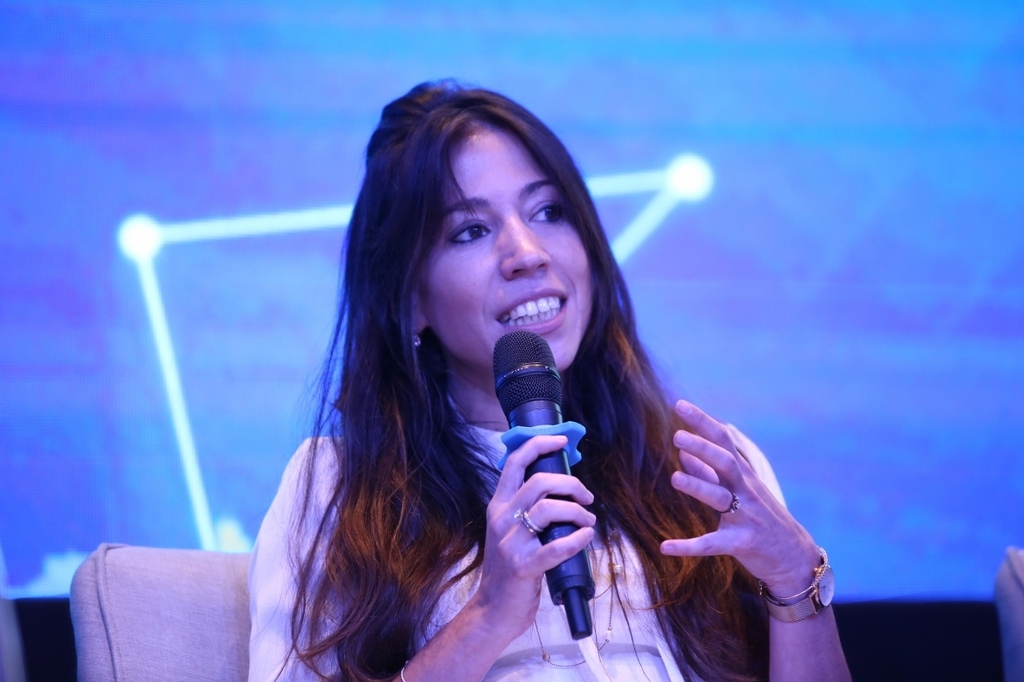One question during the interview made Lisya flinch and her voice change: As a new partner, does she receive the same salary as veteran directors, Édouard Cukierman, Yair Shamir and Boaz Harel?
"Every time I hear that question, it makes me irritated," she retorts.
"I just don't understand why women insist on being paid what they deserve from the outset, because changing conditions later on is much more difficult. For me, this wasn't even a question, because gender, and it makes no difference if it's a man, woman or a member of the LGBT community, is no reason for discrimination."
The doctrine of female empowerment and gender equality were imparted to Bahar Manoah at home in Istanbul where she was born and raised.
"I attended the Christian, St. George's Austrian High School in Istanbul," she explains.
"My family chose to follow an unconventional path. While most of my friends attended the Jewish school, my parents enrolled me at this Christian school. We were three Jewish children at the school. Most of the children were Muslim. The teacher was a nun. The aim was to obtain as broad an education as possible, so that I would grow up to be a strong, independent woman, like most of the women in my family."
Bahar Manoah talks about her childhood in the Turkey's unofficial capital, remembering weekends and holidays spent with her family at the Prince's Islands, Istanbul's ultimate holiday destination.
"I was exposed to the cultures of two nations. I had a lot of Muslim friends, with some of whom, I still keep in touch. I was also exposed to the love of Israel at home. We kept a traditional Jewish home and I was active in the Jewish community.
Name: Lisya Bahar Manoah
Age: 37
Family Status: Married +1
Education: Bachelor's and Master's Degrees in Mechanical and Industrial Engineering from the Vienna University of Technology, graduate of the Harvard University Management program (specializing in Risk Management), MBA in Business Management from Tel Aviv University
Position: Partner at Catalyst Investments, managing $300 million. Holds portfolio including companies in the fields of micro-chips, internet and media, advanced cyber and life sciences. She invests in Israeli growth stage technology companies
Another thing: She's a skipper and she dances African Tango
At the age of 18, Lisya flew the nest, going alone to live in Austria, where she completed a Bachelor's and Master's programs in Mechanical and Industrial Engineering at the Vienna University of Technology.
Meanwhile, she started developing her professional résumé, working at the BMW production plant. Eight years later, she decided to move to Israel, following her mother, Jinet Molinas who had moved to Israel following her separation from Lisya 's father. Lisya's brother, Melih Bahar also arrived to complete his studies and serve in the army.
"I came for a year. I studied at Tel Aviv University, to see if Israel was right for me and if I was right for Israel. I fell in love with the people, the atmosphere and with the country. I was torn. Should I go back to my career in Austria, or stay in Israel, starting over from scratch? In the end, I decided to make aliyah."
Lisya's father, Hayim Bahar, like many of Lisya's relatives, still lives in Istanbul.
"The bureaucracy involved in making aliyah was a tiresome. After never ending correspondence with the Israel's Ministry of Interior, I was about to give up" she recalls.
"I decided to write to then-president Shimon Peres, telling him everything I'd gone through. The very next morning, I received a phone call from the Ministry of Interior telling me that my aliyah had been approved."
A decade later, did you make the right decision?
"I don't regret it for a moment. I've built myself a home here and I'm happy. I feel I must say to anyone trying to decide whether to make aliyah, leaving behind a career in another country, that you can make it in Israel, just like you can make it in any other place.
"That said, it hurts me to see what's going on here, especially recently. Every day, I encounter a lack of respect and love for human and cultural diversity, and as the country suffers, instead of solving the problems, we're just making them worse.
"This includes Ultra-Orthodox demonstrations against secular people, and vice versa, one political party against another and there's no one here taking responsibility to unite everyone. We carry on suffering for no reason. My Zionism believes in diversity. I'd like to find the 'Together, One with the Other' rather than carrying on 'One Against the Other'."
'Everything you want will happen in the end'
Before joining Catalyst Investments, Bahar Manoah worked in management positions at pesticide manufacture, Adama Agricultural Solutions Ltd. and Keter Plastics, where she conducted the operational due diligence for the acquisition of 80% of the company by BC Partners, that was signed in July 2016.
"Sami Sagol is a wonderful man," she declares.
"We met while I was still working at Adama. Our first meeting went on for three and a half hours, after which it was clear to me that I wanted to work with him. I started working at the company in the beginning of 2015. We spent long hours together. We travelled overseas together a lot to learn about new technologies. He's a man with a vision, looking years ahead. He doesn't think short term. The high point for me was the moment of signing. I carried on overseeing the process even afterwards, completing the integration of the two companies."
And right in the middle of all of this, you find love.
"Yes, I was working a lot, but there was a moment when I understood that I wanted to meet someone and start a family. I was 32 when I met Igal Manoah, the man who became my husband. As a spiritual person, I think that whatever you really want, will happen in the end."
6 View gallery
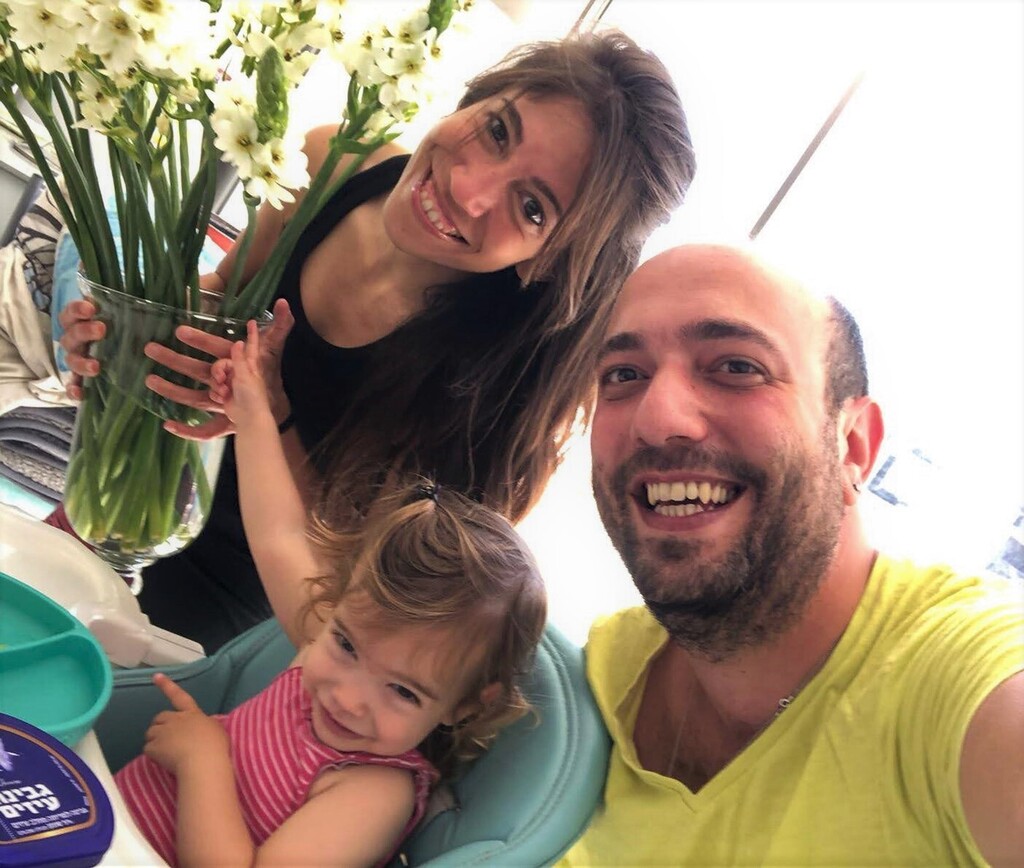

'We're both quite dominant, but when you have love and understanding, it works out.' Igal and Lisya on Mother's Day in Tel Aviv
(Photo: Courtesy)
How did you meet?
"One of my hobbies is sailing. I’m a skipper. I was sailing with a girlfriend, who asked about recommendations for Thailand and we were told that there was someone called Igal who lives in France who could give us some tips. Our first conversation carried through to longer, deeper conversations. Only after three months, when we just couldn't stop talking, did we meet for the first time.
As a businesswoman, did you also put the relationship through 'operation due diligence'?
"No," she laughs. "But there came a time that we had come to a decision. After a year and half of conducting a long-distance relationship, we needed to decide whether I move to France or if Igal makes aliyah. After long and difficult deliberations, we decided that our lives would be in Israel. I very much appreciate that, Yigal left a place where he was happy for me. I don't take it for granted. Not every man would take such a step.
"Now he is the Marketing Director of Schneider Electric and we have a two-year-old baby daughter. We run a home and equally share bringing her up. We're both quite dominant but when you have love and understanding, it works out."
How did you survive COVID-19 lockdown as a couple and as a family?
"It wasn't easy for any family at that time, especially working from home with small children. We shared our time and chores. At the end of the day, I'm happy about that time. I've never seen my daughter so happy. I understood how important it is for a little girl to be with her family. Although I was in front of the computer for hours on end, she knew I was there. Hobbies also relieve some of the pressure and stress. I am a skipper. I do a lot of sport, yoga and meditation. My husband and I dance African Tango."
6 View gallery
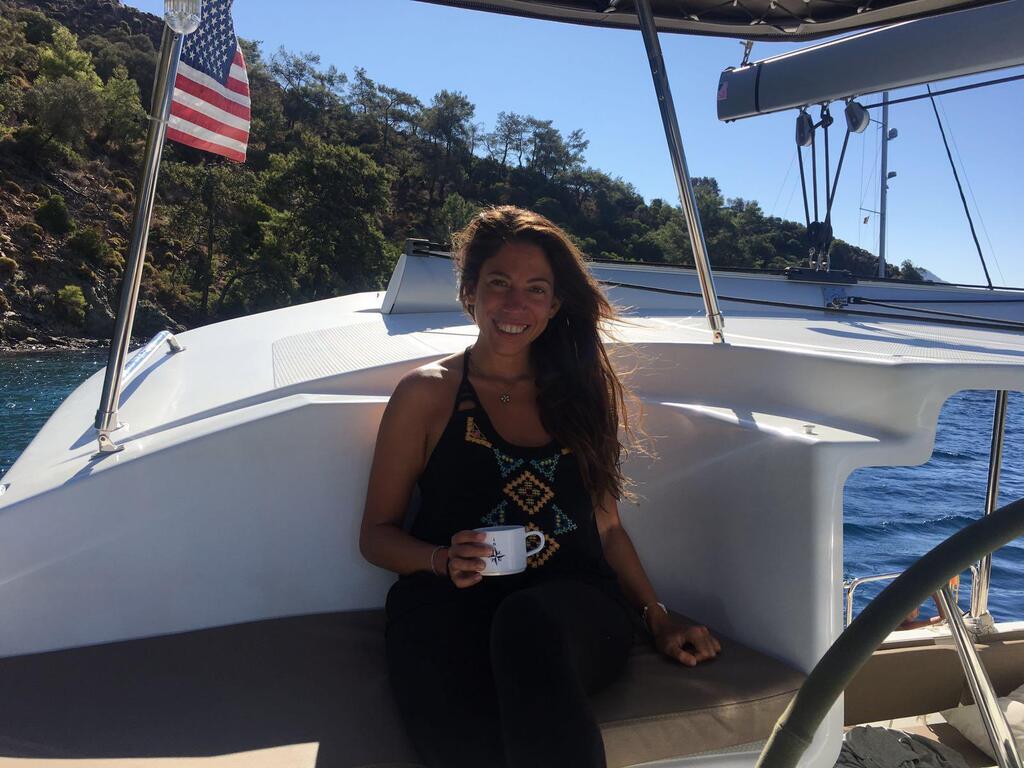

'Hobbies also relieve some of the stress and pressure.' Lisya on the boat
(Photo: Courtesy)
'In Turkey, I learned to be attentive, to listen carefully and develop empathy for people different from myself'
In August, Manoah Bahar joined Catalyst Investments as a partner, noting a milestone as company's first new partner since its founding 20 years ago. Yair Shamir, who knew her through Gvahim, an organization helping Olim, new immigrants, integrate into Israeli society, connected her with Cukierman. Two weeks following their meeting, she started working at the company.
"Their idea of bringing in a new partner was based on their desire to connect to a new generation of investors, something that characterizes every veteran investment fund, especially at the moment. Being a partner means taking part in all company processes, including raising funds, being a member of the board, bringing companies to the exit stage. I have a global network of connections, mainly in family offices, private banking and financial institutions, through which I can advance connections with Catalyst and the possibility to invest in companies in our portfolio. These connections will also serve Catalyst in building future funds."
"For me, the connection with Catalyst was the perfect match. I found a place where I can grow, where I can advance the company and where I feel part of a family."
She adds: "I've taken something from every culture in which I've lived. In Turkey, I learned to be attentive, to listen carefully and develop empathy for people different from myself. This helps me understand and balance the expectations of start-up company directors and of investors. In Austria, I learned the importance of disciplinary planning which helps me cut deals. In Israel, I never give up and always think out of the box, important features to bring to the negotiating table when choosing the right portfolio companies."
The Uniting Hi-Tech from Two Nations Conference was held on November 12. This was the first collaboration of its kind between the worlds of Israeli hi-tech and that of Turkish hi-tech investors.
Israel's Ministry of Foreign Affairs, which organized the conference, chose Bahar Manoah to lead the Israeli side of the panel in which representatives of the Turkish and Israeli ecosystem participated.
"I am familiar with both the Israeli and Turkish cultures and believe that there are no end of opportunities for both nations to benefit from the countries' good connections. This panel is a breakthrough for both sides," says Bahar Manoah.
Do you really think it's possible? Relations between Israel and Turkey are complicated to say the least, in part because of Erdogan.
"Istanbul has changed a great deal. There are a lot of business opportunities for both countries in the field of high-tech. Industry and production are very strong in Turkey and high-tech has just started growing over the last decade. We recently saw a significant exit (Unicorn) in the gaming field.
"I understand that the situation is politically sensitive, but I put politics aside and concentrate only on business opportunities. I believe we're moving in a good direction and that representatives of both countries are prepared to bring about this change. This conference was just the beginning."
Numerous businesspeople have recently visited Dubai openly, following years of behind-the-scenes business dealings. How do you now view these business developments?
"In the Emirates, there's an enormous desire to invest in various types of Israeli high-tech technology and we are preparing for a conference there dealing with nutritional security. Most of the food in the Emirates is imported and COVID19 served as a catalyst for them to understand the subject. The conference will connect investors from there to Israeli start-ups."
How has the COVID crisis impacted high-tech investments globally and in Israel?
"Data shows investments of $7.53 billion in Israeli high-tech up to the end of September 2020, but this may be deceptive. Although these are great figures, most of the transactions began before the crisis, or before investors started streaming money into their portfolio companies.
"It looks like we'll only see the true impact of the crisis in 2021, when companies are going to find it difficult to find new clients or renew contracts. So, it's important to start planning now for the effects we'll see next year. For example, companies can minimize damage by strategically concentrating on countries where recovery is quicker. In China, business is generally back to normal. Much of our work at Catalyst involves being in constant contact with our portfolio companies, helping them as much as possible and sharing our ideas concerning the best way through the crisis."
At the beginning of this month, you participated in the Women in Private Equity Forum in England, focusing on women in Global Venture Capital.
"It's the second largest annual conference held in Europe, with hundreds of women from all over the world participating. This year's forum focused on private markets. In the panel I addressed, I detailed the added value that we, at Catalyst, can offer portfolio companies during the crisis. It's very important for me to promote agenda relating to the advancement women and work towards diversity in this industry, which is very much known as a 'manly' business."
Why?
"Generally speaking, we don't see a lot of women in senior high-tech positions. This effects Venture Capital investments. It'll start changing when women lead the way towards change. I think it's sad that there aren't enough women in senior positions in this industry. Women must understand that getting over these hurdles is in their hands. They have to prove their strength, and never give up."
Will this be a slow process? Is it worth hoping for?
"I don't believe in concepts like "slow" and "hope". I hear a lot of women complaining. I can't believe it – instead of complaining, women should be getting up and doing. We need to be putting women in top positions as quickly as possible. I hear complaining, but less doing. They're waiting. If we wait for it to happen, it won't happen."


